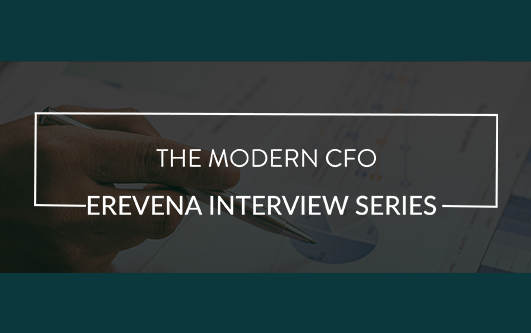Jonathan Safarti is Chief Finance Officer at Freeland, which provides a platform of tools and services to the largest freelance community in France. He talks to Erevena’s Thibault Lalouette about the ever-broader remit of the CFO – and the challenges facing CFOs in France today.
How did you start out in finance leadership?
Having completed a Masters in market finance at the Sorbonne in Paris, I began my career 15 years ago as an analyst/associate. It was for a small boutique company that undertook M&A and fundraising activities. A few other roles followed and I’ve since been a CFO for three different companies, recently taking up my fourth CFO position at French company Freeland. On this journey I’ve worked with non-profitable businesses, on growth, and on structuring teams, processes and tools, and in the scale-up world, So, it has been varied but largely in the tech space, including e-commerce.
Before joining Freeland as CFO I was working for last-mile disruptive delivery service company Stuart. I was with them for 7.5 years until 2023, having joined when the company was still small, just out of seed/series A investment. I left following its acquisition by private equity company Mutares.
What does Freeland do?
It’s an umbrella company for freelancers – what’s known as an employer of record (EOR) company in France. So, it provides services to freelancers, enabling them to remain independent yet freeing them from admin activity, such as managing pay slips, social security and legal matters. Freeland also offers a staffing service, helping freelancers find assignments by matching a database of more than 150,000 freelancers with the specific resourcing needs of clients who partner with the Freeland platform.
I see it as an ecosystem for people wanting to move from traditional work contracts to something more flexible. Whereas previously this work model was more likely to be for blue collar workers – e.g. delivery drivers and bike couriers – it’s now increasingly for white collar workers who want to be in charge of their own work-life balance.
What is it like taking the leap from a scale-up to an established business?
Freeland is a profitable company and has recently been acquired by MML through a buyout operation (LBO). After 15 years in the tech space, it feels like a step into the ‘old world’ of business, with profit, debt, buyouts and the like. It’s a very different topology and business need to where I’ve been before but it’s where I wanted to start the next chapter in my career. I hope to bring everything that I’ve learned in the tech space to a less t .
Moving from the scale-up world (where there hasn’t been the same hyper growth over the past few years as we saw 10 years ago) will demand different skills. It’s less digital, less tecchie and I have a lot of things to do in terms of tooling and processes. In a scale-up you get used to using automation, building processes and collaborating to enable growth, but that dynamic isn’t the same in a more traditional company.
What has changed for you in terms of your skillset?
As a CFO, the skills I now need are totally different. For the first time in my career, I have to manage banks – when you’re a start-up and scaling you are not profitable, so by definition you are not that appealing to the banks! Now the banks are interested because I have cash, debt, and some acquisition projects on the cards. So, I’m no longer viewed as an outlaw but as someone they want to work with! I now have KPIs and balance sheets to track on a daily basis. In fact, when you’re in a buyout scenario, the balance sheet becomes your Bible, giving oversight into the working capital, debt, equity, etc.
Do you feel that the modern CFO has a broader remit these days?
Yes. When I became CFO at e-commerce company Westwing almost 10 years ago, I was only in charge of finance. At Stuart, I took on responsibility for finance, legal, and then HR for an interim period when they didn’t have a VP People. Now, I cover finance as well as legal, but the biggest change to my remit is the exponential growth in the volume of data. The modern CFO is increasingly involved with managing company data.
The profile of the CFO has also changed. You used to come into finance from chartered accountancy or a business school with a finance specialisation. Now, however, you can be an entrepreneur, or come from a consulting background. There’s a Swiss army knife approach where you’re no longer just ‘the finance expert’ but now need to be able to take a project from A to Z, and it might not necessarily be a finance project at all!
Can you expand on the subject of data and its impact on the CFO?
For the CFO, finance planning and analysis (FP&A) used to come from a world where people were good with Excel and numbers, understood accounting, and were proficient with the likes of slides and PowerPoint decks. Now, more and more, we are moving to a world where FP&A people are good at using SQL for manipulating databases. They must be comfortable with the big volume of data they need to process, not only from the company’s ERP but from other sources as well. And they’re increasingly involved in the decision-making process.
FP&A used to be just a function delivering the numbers and giving a bit of insight. Now, we’re asking the CFO, through finance and FP&A, to be one of the most important filters when it comes to decision making. This demands different tools and the ability to work with, compute and reconcile different sources of data, such as a database or data warehouse.
What is the top issue facing CFOs in France?
Perhaps the most important one – and it is not just in France – is finding the right talent. As a CFO, my days are long and (as we’ve discussed) my remit is broad. So, I need to be surrounded by the best. I need to attract and retain the best talent. Beyond this, I must nurture that talent so my team can succeed and grow. Although the talent challenge extends beyond finance roles, it is particularly true in the finance function. That’s because all companies, at whatever stage they’re at, need finance people, so the competition for this talent is fierce. That means we need to offer something different, a ‘sparkle’ that allows us to attract and keep the best.
What other challenges are there?
CFOs need to cope with working in a constrained world – accounting is very black and white and there’s very little creativity. You might be working in the tech world or another space where the possibilities are infinite and creativity abounds. And, as the finance lead, you have to deal with this creativity and the flow of ideas while remaining stuck within the boundaries of detail, shareholders, monthly closing, budget etc. So, you need to find the right equilibrium of being an enabler of growth, creativity and innovation, while navigating a world of financial constraint.
What does success look like for the modern CFO?
While it depends on the role and on the company, for me a critical success factor is having a voice that counts – to be listened to by the Executive Committee, the shareholders, or the board. I’ve previously been in the position where the CEO listens first to the CTO, then the CMO, and finally, at some point in time, the CFO. But I feel that, especially at this time of inflation and path to profitability for almost all companies, it is important for the CFO to be in a position to speak and be heard.
Success for me is also about being an expert in the business. I’ve seen too many CFOs who sit in their ivory towers along with their soldiers (the accountants, analysts, etc.) but don’t really care about the product or the market, that’s not for me. That’s why, in the first two months of joining Freeland, I spent more than 50% of my time talking to the business and getting an understanding of the logic. This is important for a CFO’s success. Why? Because when someone does something in the business, it will eventually have an impact on finance or the books. So, it is important to know what is going on at every stage of the business value chain.
This is something I stress to the young recruits I work with. They need to understand that while the rudiments of what they do might be the same, every company is different, so their jobs and the way they do them will be very different. The same applies to the expectations of the ExCom, the board and the shareholders – each company expects different things from its finance team depending on what the company does and what life stage it’s at. So, look beyond your finance remit and specific tasks to learn all you can about the business.
Is there a tip you’d like to share about the role of CFO?
As an executive, before being a CFO, I am first and foremost a manager. So, the happiness of my team is another aspect of how successful I am. I am responsible for creating a good team spirit and ensuring everyone can develop. Managing people’s ups and downs is a daily part of what I do. I’m here to create trajectories; to create success stories. That’s what a good CFO does.
Share this article:











